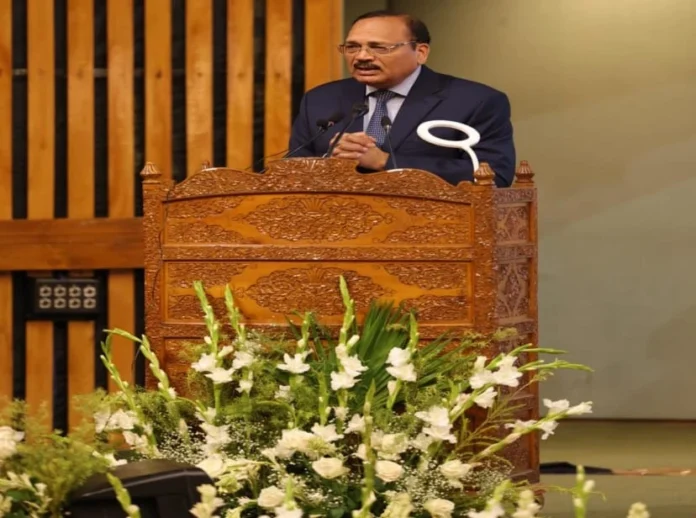During the Annual Litigation Conference held in Chandigarh,the Supreme Court Judge Justice Surya Kant gave an inspiring message on the transformative role of mediation within India’s legal system. He argued that mediation must not be seen as a mere substitute for traditional adjudication, but as an intrinsic constitutional value principle that embodies the essence of compassion, dialogue, and social harmony envisioned by the framers of the Indian Constitution.
Justice Surya Kant highlighted that India’s justice delivery system is experiencing a “silent yet powerful evolution.” The judiciary, he observed, is gradually moving away from a culture of confrontation and adversarial disputes toward one that values collaboration and conciliation. This evolution, he said, reflects a growing acknowledgment that the ultimate goal of law is not to win arguments but to restore peace and balance in society.
According to Justice Kant,the introduction and promotion of mediation across courts and institutions represent not merely a procedural reform, but a philosophical shift in how justice is perceived. He noted that the Mediation for Nation initiative which was recently launched by the Supreme Court embodies this very spirit of participatory justice. Through this initiative, courts aim to resolve conflicts through understanding and empathy rather than endless litigation.
“Mediation,” Justice Kant said, “is a reflection of our constitutional ideals those of fraternity, justice, and human dignity. It is not just an alternative mechanism but a manifestation of the values that our Constitution cherishes.”
Drawing from India’s socio-legal ethos, Justice Surya Kant emphasized that law should act as a bridge between conflicting interests, not as a weapon of division. He remarked that the judicial system must work toward mending relationships and fostering reconciliation instead of deepening disputes.
He reminded the audience that the judiciary’s moral responsibility goes beyond pronouncing judgments—it involves nurturing social cohesion. True justice, he suggested, is achieved when both sides feel heard, understood, and respected.
Justice Kant further observed that mediation has the potential to significantly reduce the burden on the courts, enabling faster resolutions and saving valuable judicial time. Yet, he cautioned that efficiency should not be the sole objective. The real value of mediation lies in restoring trust and humanity in legal processes.
In his address, Justice Surya Kant also touched upon the growing significance of international legal cooperation in an increasingly interconnected world. He noted that principles such as “comity of courts” and “cross-border collaboration” are not merely abstract ideals—they are essential tools for ensuring global justice.
He illustrated this point with a poignant example of a custody dispute involving a mother and her child across different jurisdictions. Behind every such case, he said, lies a deeply human story. It is therefore the duty of courts to interpret and apply the law with compassion and sensitivity, ensuring that justice serves the people it was designed to protect.
Justice Kant urged legal professionals and judges to approach transnational disputes with a spirit of empathy and understanding, recognizing that global justice depends not only on treaties and statutes but also on shared human values.
Concluding his speech, Justice Surya Kant reiterated that the Indian Constitution is more than a legal document it is a living testament to the ideals of cooperation, fraternity, and peace. Mediation, he said, embodies these constitutional promises by encouraging citizens to engage in open dialogue and mutual respect.
“The law,” he reflected, “must build bridges, not walls. It must connect hearts, not separate them.” In this vision, mediation becomes an instrument for nurturing unity and healing divisions not merely a shortcut to reduce case pendency.
Justice Surya Kant’s remarks serve as a reminder that the judiciary’s ultimate mission is not confined to resolving disputes but to upholding the moral and social fabric of the nation. By recognising mediation as a constitutional value, India takes a significant step toward creating a justice system that is not only efficient but also humane, inclusive, and rooted in empathy.


